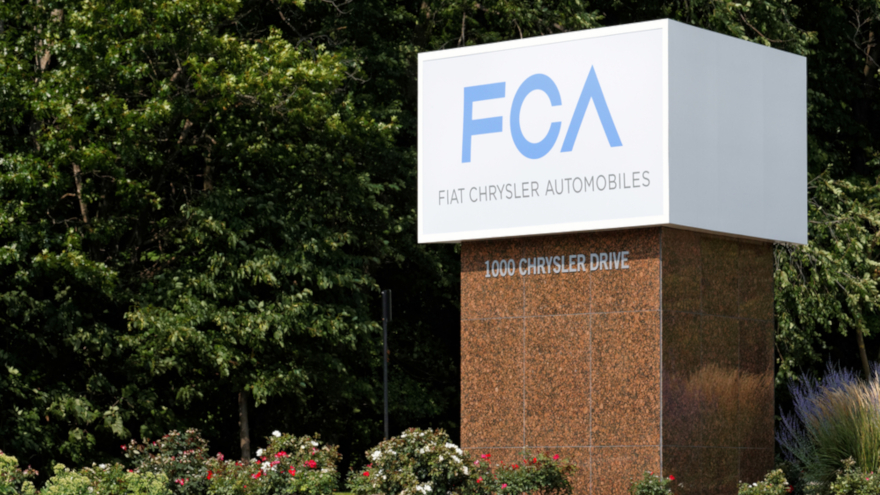While perhaps not to the scale of some other data breaches, a dealership management software (DMS) provider recently reached a settlement with New Jersey regulators whose investigation found compromised systems.
New Jersey attorney general Gurbir Grewal and the state’s Division of Consumer Affairs announced a settlement with DMS developer Lightyear Dealer Technologies — makers of DealerBuilt that provides store functions such as F&I sales, fixed ops, accounting, parts and payroll.
Enforcement officials explained settlement resolves the division’s investigation into a cyber security lapse that allowed unauthorized public internet access to a company database containing personally identifiable information of customers and employees of more than 100 dealerships nationwide, including at least four dealerships in New Jersey.
Officials indicated the security gap was exposed in 2016 when a security researcher accessed unencrypted files containing names, addresses, Social Security Numbers, driver’s license numbers, bank account information and other data belonging to thousands of individuals, including at least 2,471 New Jersey residents.
To resolve the division’s investigation into the breach, Lightyear Dealer Technologies agreed to enact a variety of data security reforms designed to prevent similar breaches in the future.
“Through this settlement, New Jersey is holding DealerBuilt accountable for a security lapse that exposed sensitive personal data belonging to thousands of our residents and untold numbers of consumers nationwide,” Grewal said.
“As a result of our negotiations, DealerBuilt has agreed to implement comprehensive cyber-security protocols to better protect consumers in all states against the threat of identity theft or other cybercrimes,” Grewal continued.
The reforms include:
—The creation of an information security program to be implemented and maintained by a chief security officer with appropriate background and experience in information security.
—The maintenance and implementation of encryption protocols for personal information stored on laptops or other portable devices or transmitted wirelessly; the maintenance and implementation of policies that clearly define which users have authorization to access its computer network; and
—The maintenance of enforcement mechanisms to approve or disapprove access requests based on those policies; and the maintenance of data security assessment tools, including vulnerability scans.
DealerBuilt also agreed to an $80,784 settlement amount.
“Data breaches like this are a sobering reminder of what can happen when companies fail to adequately protect the sensitive data they collect and store electronically,” said Paul Rodriguez, acting director of the New Jersey Division of Consumer Affairs. “As this settlement demonstrates, New Jersey stands ready to vigorously enforce the laws that protect consumers from the risk of having their most personal information exposed online.”
Through its investigation, the division found that in April 2015, a misconfigured file synchronizing program allowed unauthorized public internet access to a database containing unencrypted files backed up by approximately130 of DealerBuilt’s client dealerships nationwide, including at least four in New Jersey.
Sometime between October 29 and November 3, 2016, a security researcher was able to access the DealerBuilt database and downloaded files from five of those dealerships, including one in New Jersey: Winner Ford in Cherry Hill.
Upon learning of the vulnerability on DealerBuilt’s systems, the security researcher published an online article drawing attention to the fact that the files were backed up and stored without adequate security protocols in place.
In the wake of the breach, the division began an investigation to ascertain whether DealerBuilt’s conduct was in violation of the New Jersey Consumer Fraud Act (CFA) and/or the New Jersey Identity Theft Prevention Act (ITPA).
In a consent order resolving the investigation, DealerBuilt agreed to an $80,784 settlement amount comprised of $49,420 in civil penalties and $31,364 in reimbursement of the division’s attorneys’ fees, investigative costs and expert fees.
Under the terms of the order, $20,000 in civil penalties will be suspended and automatically vacated at the expiration of two years provided DealerBuilt complies with the terms of the consent order and does not engage in any acts or practices in violation of the CFA and/or the ITPA.
Attempts to reach DealerBuilt for a comment about the settlement were unsuccessful.
Investigator Christopher Spaldo and former investigator Brian Morgenstern of the Division of Consumer Affairs’ Cyber Fraud Unit conducted this investigation.
Deputy attorney general Zachary Klein and former deputy attorney general Russell Smith Jr. within the Affirmative Civil Enforcement Practice Group in the Division of Law represented the division in this matter.
Regional Acceptance Corp. (RAC) and Dealertrack Accelerated Title this week spelled out a pair of reasons why they’re now working together to create efficiencies in their payoff and title release process with dealers accepting vehicle in on trade.
RAC, a finance company and a subsidiary of BB&T Corp. specializing in sub-prime automotive financing and prime-to-near-prime portfolio acquisitions, supports dealers and customers in more than 40 states with 30 regional business centers and four customer service centers.
With Dealertrack Accelerated Title, RAC can expedite the vehicle payoff process electronically in two important ways:
— Accurate payoff quotes are provided to dealers via Dealertrack based on their preferred payment date.
— Accurate payment is made via a three-day ACH process that when cleared triggers title release to the dealer.
The companies explained this solution can create significant cost savings by releasing titles to dealers up to 70 percent faster than the traditional method of calling for quotes, handwriting checks, mailing overnight and then waiting on title delivery.
By reducing the number of days a dealer waits for a title from 12 to 18 days or more to as fast as four to six days, Accelerated Title and RAC save the dealer money. On average, dealers pay a holding cost of $32 per day, per vehicle that sits idle on their lot.
In addition, long-standing proprietary research found that vehicles are nearly two times more likely to sell on the first pass through an auction lane when they have titles. The companies pointed out that cutting costs and turning inventory faster are critical to dealer profitability given today’s razor-slim profit margins.
“Dealertrack’s Accelerated Title brings us the most advanced lender solutions in market today,” said Fred Reherman, chief operating officer of BB&T Dealer Retail Services, Regional Acceptance Corp., and BB&T Dealer Finance.
“Entrusting Dealertrack to deliver speed, accuracy and consistency to our vehicle payoffs was a clear choice, because the company exudes the same characteristics of honesty, integrity and mutual respect that are core to RAC,” Reherman continued.
Dealertrack went on to stress that Accelerated Title can provide dealers with title visibility to ensure validity of the trade before the deal is finalized, as well as providing 24/7 title tracking, reporting and statements so clients know exactly what’s happening with every transaction.
“It is great to see RAC succeed with Accelerated Title,” said Todd Hutto, vice president and general manager of Dealertrack Lender Solutions.
“Our goal is for Accelerated Title to expedite the titling process for dealers and lenders, creating efficiencies on both sides that help everyone work smarter and more profitably,” Hutto said. “RAC is already seeing positive results and we’re confident their efficiencies will get even better.”
GrooveCar Direct announced 17 new credit union partners have joined its online vehicle shopping and financing program during the second quarter.
Coming aboard the program in Q2 were institutions from 12 different states, serving 137,305 members, including:
— AAA Federal Credit Union, South Bend, Ind., with assets of $64 million serving 6,905 members
— Allegheny Health Services Employees Federal Credit Union, Pittsburgh, with assets of $13.1 million serving 3,647 members
— Bessemer System Federal Credit Union, Greenville, Pa., with assets of $38.1 million serving 4,467 members
— Central Communications Credit Union, Independence, Mo., with assets of $50 million serving 5,998 members
— Central Jersey Federal Credit Union, Woodbridge, N.J., with assets of $75 million serving 7,783 members
— Chief Financial Federal Credit Union, Rochester Hills, Mich., with assets of $154 million serving 26,478 members
— Complex Community Federal Credit Union, Odessa, Texas, with assets of $495 million serving 38,233 members
— CS Credit Union, Catawba, N.C., with assets of $31 million serving 2,855 members
— Department of Public Safety Federal Credit Union, Oklahoma City, with assets of 26.3 million serving 2,718 members
— G.A.P. Federal Credit Union, Johnstown, Pa., with assets of $46 million serving 5,163 members
— Kingsport Press Credit Union; Kingsport, Tenn., with assets of $69 million serving 6,641 members
— McIntosh Chemical Federal Credit Union, McIntosh, Ala., with assets of $24 million serving 2,425 members
— Michigan Columbus Federal Credit Union, Livonia, Mich., with assets of $46 million serving 4,281 members
— None Suffer Lack Federal Credit Union, Suitland, Md., with assets of $23 million serving 2,989 members
— Tri-Valley Service Federal Credit Union, Pittsburgh, with assets of $15.9 million serving 4,166 members
— Upper Cumberland Federal Credit Union, Crossville, Tenn., with assets of $64 million serving 7,486 members
— West Texas Credit Union, Odessa, Texas, with assets of $57.2 million serving 5,060 members
As members continue to perform daily tasks from the palm of their hand while on their phones or in front of their computers, GrooveCar Direct insisted that credit unions find the online buying program a perfect complement to meet members’ needs.
The GrooveCar Direct program can deliver five activities online vehicle shoppers are conducting, including:
— Researching prices
— Locating vehicles listed for sale
— Comparison shopping of different models
— Trade-in values
— Locating a dealer
Other means of lead generation the platform can include:
— Shoppers saving their searches
— Applying for financing online
— Finance calculator
— Free Carfax reports
— Installment contract refinancing
— Accessing credit union promotions
— Preferred dealer network price specials
“We recognize that a one-size-fits-all car shopping platform to engage their members is not what our credit union partners need or what they want. Our success is due to the engagement strategy built into the program, along with it being highly customizable,” said Robert O’Hara, vice president of strategic alliances at GrooveCar Direct.
“Credit unions are provided with a suite of services and features that meet a member’s demands while providing continuous support that our partners appreciate in a turn-key program,” O’Hara continued. “These programs include marketing and sales webinars on trending topics, branding assistance, marketing collateral, video and email marketing campaigns and consulting.”
Equifax auto finance leader Lou Loquasto pictures an industry landscape where finance companies rank dealerships based on risk and potential profitability, just like they do consumers as applications arrive in the underwriting department.
By extrapolating the knowledge gleaned through static pool analysis, Loquasto explained how dealerships and finance companies still can capture potential business in the subprime space as the current cycle backs off the growth pattern seen for several years.
The latest data Equifax shared with SubPrime Auto Finance News showed 1.37 million retail installment contracts were originated through March to consumers with a VantageScore 3.0 credit score below 620; deals generally considered to be subprime accounts. The figure represented a 7.3-percent decrease year-over-year.
“Does that mean every dealership subprime is down 5 to 10 percent? Without looking at the data and knowing what we know about the business, probably not,” Loquasto shared during a recent phone conversation. “That would be pretty remarkable if you look at 30,000 dealerships, and they’re all down 5 to 10 percent.
“We see dealers that are up in subprime and some that are down 25 percent,” he continued.
So how are some stores moving on an upward trajectory in subprime? Loquasto explained that finance companies need analytics platforms to determine which dealers are a better fit for their book of business and provide the right amount of risk for their appetite. Equifax recently analyzed TradeSight metrics evaluating a series of dealers with a focus on subprime accounts in the 560 to 580 credit range.
The chart below shows two dealerships with side-by-side comparisons that look at a handful of credit performance criteria, such as delinquency rates, average APR and length of months on the book.
According to the data below, dealer A shows a higher propensity for customers with 30-plus and 60-plus delinquencies, as well as charge offs. However, dealer A also represents clientele with higher APR rates. Based on this data from platforms such as TradeSight, Loquasto pointed out that finance companies can best analyze which contracts and dealers make up the best opportunity for their book of business based on a number of credit performance and risk assessment data.
“The difference in profitability of those two scenarios is dramatic,” he said.
| Item |
Dealer A |
Dealer B |
| Charge-off and Repo at Month 14 |
3.80% |
3.60% |
| Charge-off and Repo at Month 22 |
12.00% |
5.20% |
| 30 Days Delinquent at Month 18 |
36% |
11% |
| 60-Plus Days Delinquent at Month 18 |
18% |
8.20% |
| Average APR |
12.70% |
9.50% |
“Some dealerships where the performance is worse than you would expect and worse compared to their peers, some of those dealerships are down a lot in subprime. You say that makes sense. Lenders spotted something with that dealership, and so they’re pulling back and tightening up,” Loquasto said.
“But we see dealerships that are down in subprime, but the performance in their static pool is much better than other dealerships within the same credit band,” he continued. “We would look for lenders to review data, identify dealers like that and be a little more aggressive with that dealership. They might say, ‘This might be a deal I would normally turn down, but this dealer’s performance is so good that we’re going to give them the benefit of the doubt.’”
Loquasto acknowledged that sometimes dealerships have a negative reputation when it comes to subprime originations so finance companies simply tighten up underwriting across the board when they feel a market shift. He suggested that finance companies take a deeper analysis before just cutting.
“Our industry is so sophisticated right now, especially in subprime, that if a lender was looking at 1,000 loan applicants, they would scrutinize those 1,000 loan applicants with sophisticated scores and data with people who have great experience choosing good borrowers from bad borrowers, and they’ll be able to rank order the least riskiest to the most riskiest, and they do an awesome job,” Loquasto said.
“But they don’t do that with dealers so well,” he continued. “They don’t look at these 1,000 dealers and do a sophisticated analysis using all of the available data and sophisticated scorecards not only for the business they book, but the business their competitors book. And then have a sophistical ranked order list at the dealer level.
“That’s something we’ve been advocating for a long time,” Loquasto went on to say. “As a long as I’ve been in the business, more than 20 years, there are pools of dealers that help you with market share, which is fine. But what we’re advocating is dealer pools to rank order risk at the dealership level.”
Not just in subprime, Equifax data also showed a general slowdown in auto financing.
Again through March, Equifax said 5.82 million auto loans, totaling $130.6 billion, were originated, representing a 2.0-percent decrease in accounts and a 0.1-percent decline in balances year-over-year from this time last year.
Through March, Equifax found that 23.5 percent of auto loans were issued to consumers with a subprime credit score, and they accounted for 18.5 percent of origination balances.
Equifax went on to mention the average origination amount for all contracts came in at $22,693, a 3.5-percent rise. The average subprime contact amount stood at $18,033, according to Equifax, which added that figure marked a 2.7-percent lift year-over-year.
“Where we are in the cycle, there isn’t as much profitability out there for lenders. That’s why we’re talking about strategies like this so they can squeeze out every bit of profitability they can,” Loquasto said.
“Three, four, five years ago when profitability was high, maybe lenders weren’t as diligent about squeezing out every dollar of profit. But now they are,” he continued. “If we’re in the seventh inning of this cycle and lenders can get into the good habit of doing a better job rank ordering dealer risk then as soon as the cycle turns like we know it will and we get back into growth, they’ll have built in these good habits.
“Just like every customer has to be looked at differently and the industry does a great job of that, every dealer can’t be looked at the same,” Loquasto went on to say.
This week, GWC Warranty announced the inception of a newly created major account management team.
The provider of used-vehicle service contracts sold through dealers indicated this new team of five highly skilled and experienced account managers will be led by area vice president Cynthia Bodden and will service GWC Warranty’s largest dealership partners.
GWC Warranty insisted its highest volume dealers will receive an even greater level of individualized service focused on delivering value that can help these dealers sell more vehicles and be more profitable.
“At GWC Warranty, we have spent the past 20-plus years providing dealers a best-in-class service experience,” GWC Warranty chief revenue officer Brian Stach said. “Over that time, we have seen how our largest dealer partners require a unique and personalized level of service.
“In an effort to provide such without sacrificing the best-in-class experience we provide all GWC dealer partners, we proudly introduce our highly specialized major account management team,” Stach continued.
Robert Chandler joins GWC as the major account manager for the Northeast United States. A University of Massachusetts graduate, Chandler has nearly 15 years of experience in the automotive and finance industries with companies such as Dealertrack, Hitachi Capital of America and Allstate Dealer Services.
David Hartmann, the major account manager for the Central United States, has 20 years of sales experience, including over a decade in the automotive and F&I industries with large franchise dealerships.
Joseph Kontz has been hired as the major account manager for the Mid-Atlantic United States. Kontz has spent the past nine years in the automotive industry as a franchised dealer sales representative and an F&I executive with Zurich Insurance.
Alicia Murray has joined GWC as the major account manager for the Southeastern region of the United States. Murray brings more than two decades of sales and management experience to GWC, including more than 15 years in the automotive industry as an F&I manager at a franchised dealership and a dealership training specialist with Ally Financial Dealer Products & Services.
Chad Staples is now the major account manager for the Western part of the country, having spent nearly a decade in sales and account management, including several in the insurance and automotive industries.
According to confirmation from Fiat Chrysler Automobiles on Friday, how FCA dealers can finance inventory and their retail sales is going to change.
The automaker announced it intends to establish a captive financial services arm to provide U.S. consumers with more options to finance vehicle purchases while supporting the company’s sales volumes and bolstering its earnings.
The currently does not have a captive finance company within its portfolio, even though Chrysler Capital exists. Established more than five years ago, Chrysler Capital is part of Santander Consumer USA.
More than 2.1 million new cars and trucks were sold by FCA in the U.S. last year. FCA said it currently is the only major automaker in the U.S. without a captive financing arm.
“Given our strong financial performance and improving credit profile, we believe the time is right to pursue a U.S. Finco strategy,” FCA chief executive officer Sergio Marchionne said.
“FCA will have adequate capital to fund the equity needed and expects to have the credit rating to make the Finco funding competitive,” Marchionne continued
Chrysler Capital , along with a variety of other providers including Ally Financial, currently underwrites consumer financing for most FCA vehicle purchases in the U.S.
FCA said is exploring whether to acquire an existing financial services business, which could include exercising an option to acquire Chrysler Capital, or to build its own Finco.
Exploratory discussions with Santander regarding Chrysler Capital have begun, according to the company.








